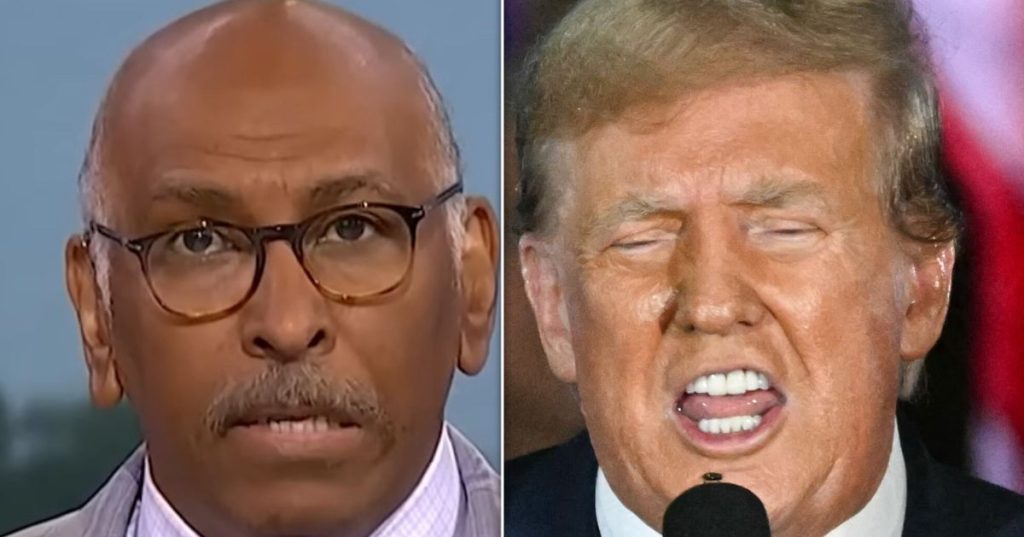Michael Steele criticized the notion that racists cannot have Black friends, pointing out that in the case of Donald Trump, there is a long history of racist behavior. Steele specifically referenced Trump’s support for the execution of the Central Park Five, as well as his derogatory comments about nations with large Black populations and his response to the white nationalist rally in Charlottesville. Steele dismissed the idea that Trump’s friendships with Black individuals refuted his racism, emphasizing the need to confront and acknowledge the reality of his actions.
Steele highlighted Trump’s call for the death penalty for the Central Park Five as a clear example of racist bias. Trump took out full-page ads in 1989 urging New York to reinstate the death penalty following the arrest of five young Black men in connection with the rape and beating of a jogger in Central Park. This case, in which the men were later exonerated, exemplifies the dangerous consequences of racial prejudice and the systemic injustices faced by Black individuals. Steele’s criticism of Trump’s actions underscores the need to hold individuals accountable for their racist behavior.
In addition to the Central Park Five case, Steele also referenced Trump’s derogatory comments about countries with large Black populations as further evidence of his racism. Trump reportedly referred to these nations as “shithole countries,” demonstrating a clear bias against people of color. Steele’s condemnation of Trump’s language and attitudes highlights the harmful impact of racism on global perceptions of Black people and the importance of challenging discriminatory beliefs at all levels of society. These comments reflect a pattern of racist behavior that cannot be excused or ignored.
Steele also called attention to Trump’s response to the white nationalist rally in Charlottesville, Virginia, as another example of his racist views. Trump controversially claimed there were “very fine people on both sides” of the rally, which ultimately led to violent clashes and the death of a counter-protester. This equivocation on the part of the president in the face of white supremacist violence sends a dangerous message and serves to embolden racist individuals and groups. Steele’s criticism of Trump’s response underscores the need for strong leadership and accountability in addressing issues of race and discrimination.
Overall, Steele’s comments serve as a reminder of the enduring problem of racism in society and the need to confront it openly and honestly. By highlighting Trump’s record of racist behavior, Steele challenges the notion that individuals can be absolved of racism simply by having friends of a different race. He emphasizes the importance of holding individuals accountable for their actions and words, particularly when they perpetuate harmful stereotypes and injustices. Steele’s words call attention to the ongoing struggles faced by Black communities and the urgent need for meaningful change at all levels of society.
In conclusion, Steele’s critique of Trump’s racist behavior serves as a call to action for all individuals to confront and challenge discriminatory attitudes. By refusing to accept excuses or justifications for racist actions, Steele underscores the importance of accountability and responsibility in combating racism. His comments highlight the need for honest conversations about race and the harmful impact of racist beliefs on society as a whole. By speaking out against racism and holding individuals like Trump to account, Steele advocates for a more just and equitable future for all individuals, regardless of race or background.


